Weiss Technik Nederland B.V.
Newtonstraat 5, 4004 KD Tiel, Nederland
BATTERY TESTING AT WEISS
Sophisticated battery testing technology is required to test the safety, reliability and performance of electrical energy storage devices for vehicles under all thermal, climatic and mechanical stresses. That is why we offer automobile manufacturers and suppliers a large selection of tried and tested standard test chambers. In addition, we plan and implement customized test chambers and rooms as a single-source supplier and support the planning of laboratories and the integration of central refrigeration units.
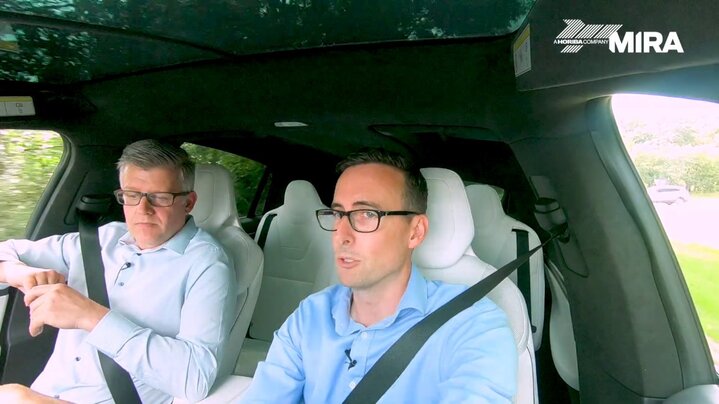
Testing battery systems and advanced battery development for electric vehicles require high attention. Simon Dunett and Alastair Evanson from HORIBA MIRA take a short ride and talk about the high risks and how to master challenges.
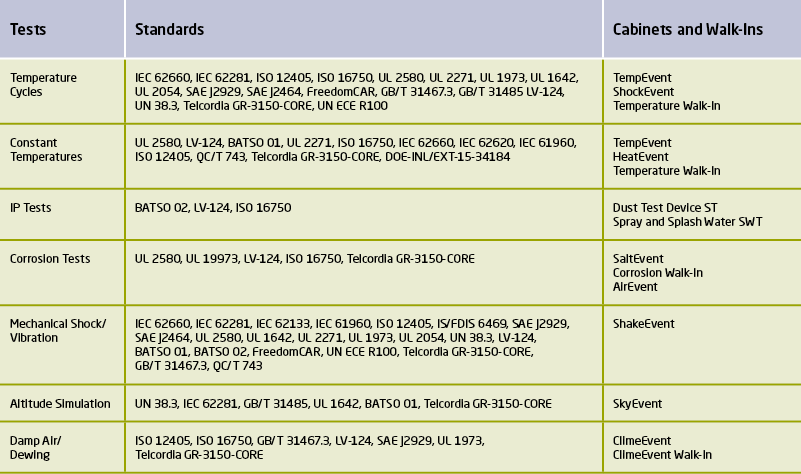
LV 124
Automotive Test Standard LV 124 describes the most important standardized tests for energy storage devices in the automotive industry. We would be pleased to inform you about how our solutions can reliably meet the requirements of LV 124.
Tests requested:
UN38.3: Classification in dangerous goods classes
Standard UN38.3 is based on the transport regulations for dangerous goods and describes the tests for classifying energy storage devices in dangerous goods classes. It is a worldwide valid standard that is binding for all manufacturers of electrical energy storage devices.
Tests requested:
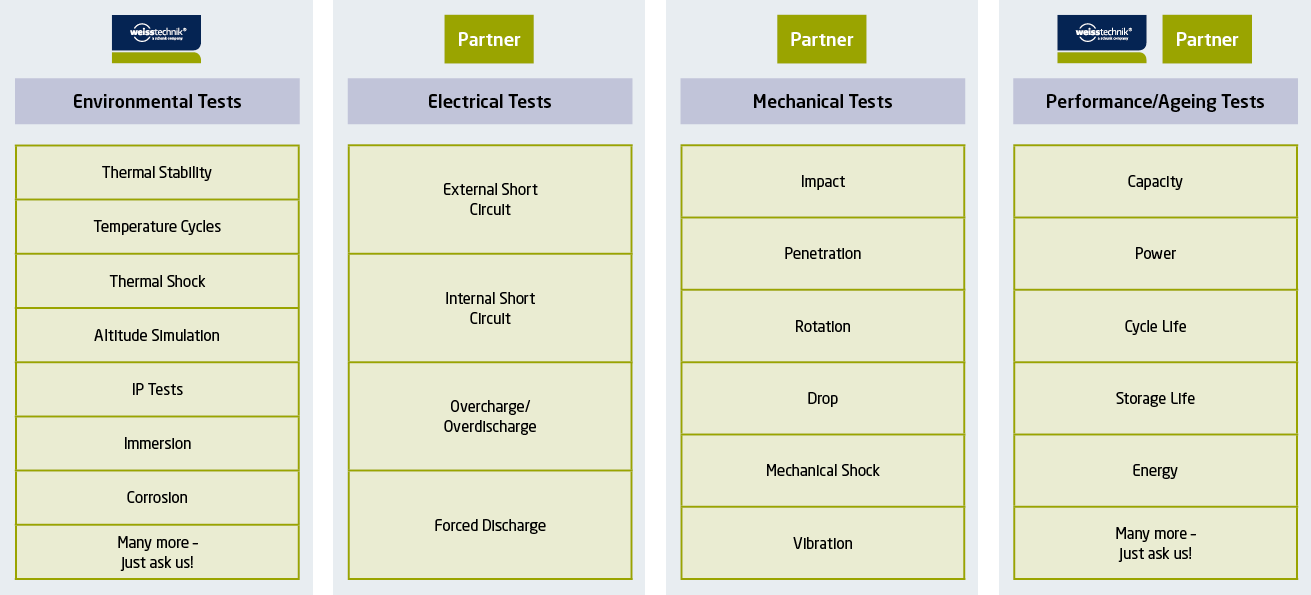
Due to the high energy density of lithium-ion batteries, overloads and malfunctions can occur during tests. If a so-called thermal runaway occurs in a single cell, this uncontrolled chemical reaction can spread to other cells and destroy the entire battery. The potential effects and dangers of a malfunction increase as the storage capacity increases. Safety in the laboratory is therefore a top priority for us.
We advise you on how much safety is needed
We are a TUV*-certified specialist for battery testing technology, and as such adhere to the Machinery Directive and the requirements of the CE Declaration of Conformity. In addition, we comply with the EUCAR hazard standards and the ATEX directives for hazard assessment. We advise our customers in detail which safety standards are relevant for their specific testing tasks and which safety equipment is necessary for their testing systems.
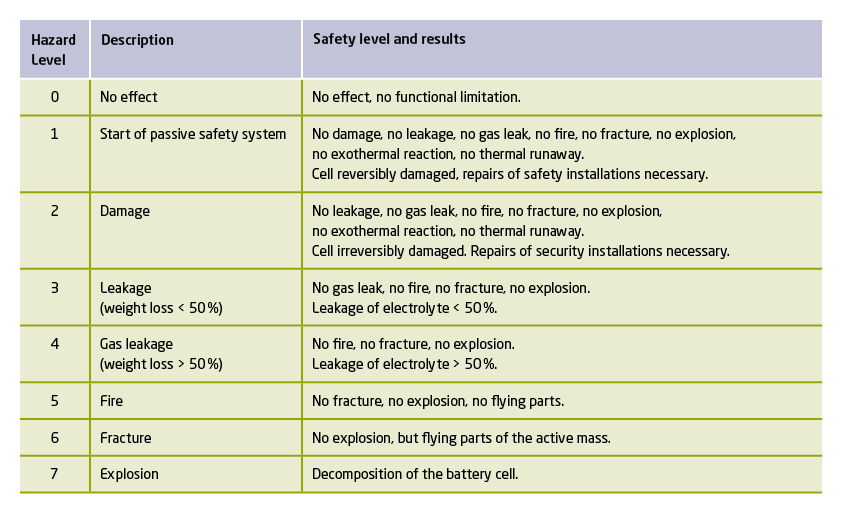
To better assess the hazard potential of tests, EUCAR (European Council for Automotive R&D), a consortium of European car manufacturers, has investigated hazardous situations and divided them into eight risk classes. The development of the safety equipment of our battery test systems is also based on this classification.
The weisstechnik module kit for hazard levels
We have developed a special hazard level module kit for our lithium-ion test systems. For each hazard level, we recommend specific safety devices that can be fitted to our test systems according to customer specifications. This means that tests can be carried out safely in the intended hazard levels. Together with our customers, we assess which safety devices are necessary for the respective test systems.
ATEX directives are valid throughout Europe to ensure the safe operation of industrial plants and equipment in potentially explosive environments or under potentially explosive conditions. They supplement the measures specified in the hazard levels, which only consider the danger of overpressure-induced explosions of housings. ATEX also takes into account the dangers of explosive mixtures that may occur during a battery test if gas is introduced into the test space by the test specimen. Depending on the hazard potential, battery test systems may also require safety measures in accordance with ATEX standards.
Is ATEX protection required? We advise you.
Together with our customers, we analyze the hazard potential of their test projects, also with regard to the risk of gas explosions. Depending on the requirements, we equip our battery test systems with safety devices in such a way that they reliably meet the required ATEX guidelines.
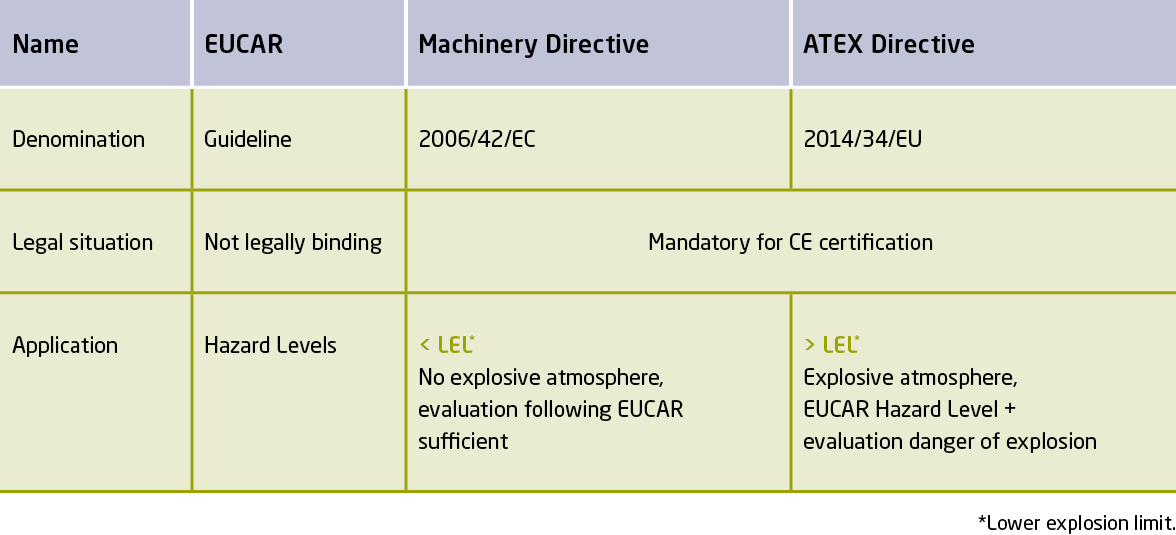
Abuse tests push electrical energy carriers to the limit (of their capability) – and sometimes even beyond. Batteries are exposed to extreme stress such as extremely high or low temperatures, mechanical damage such as crushing or electrical loads such as short circuits or overcharging and deep discharge.
These tests under extreme conditions require particularly high safety standards for test equipment. Weiss Technik is currently developing new test systems for abuse tests.
Newtonstraat 5, 4004 KD Tiel, Nederland